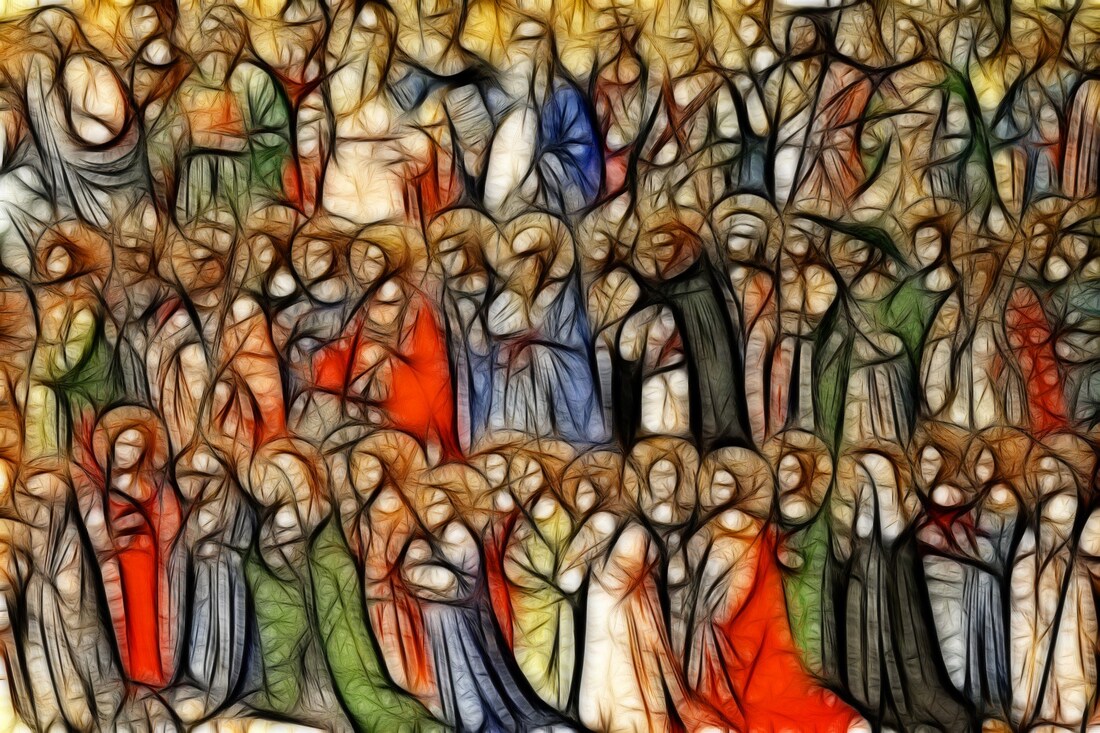|
Throughout the year, the Southern New England Conference of the United Church of Christ reproduces the Daily Lectionary for use by churches. These are the suggested readings for March 28th: Leviticus 23:26-41; Psalm 53; and Revelation 19:1-8. I would encourage you to read these short selections as part of your Lenten practice.
I attended Brandeis University as an undergraduate. It was a great experience in many ways. One of which was my exposure to a lively Jewish faith. Brandeis was born as a sectarian Jewish college after World War II. It continues to have a large and active Jewish presence on campus. It was good for me to experience this academic and religious culture as a young person because I had led a sheltered life in suburban Western Massachusetts. The only person of a Jewish faith I can remember from my youth was my dentist. While at Brandeis, I was invited to attend different Jewish Services from various branches of Judaism. It ranged from an Orthodox Service where the men and women were separated and much was in Hebrew to a Conservative Service that invited everyone to intermingle and was rather informal. I also witnessed the mass participation of the Jewish students in the practice of their Holy Day traditions, two of which are laid out in today’s Leviticus reading. The Day of Atonement, Yom Kippur, I liken to our Good Friday. It is an extremely solemn and somber day. Many of the ones I knew were not particularly observant on a regular basis, but on the Day of Atonement they practiced the ritual of their faith. Many would not even turn on a light in their dorm rooms. The lights needed to be turned on before the Day of Atonement because even to flip the switch was judged an act of work and all work is forbidden on this sacred day. The other tradition is the Feast of Booths, Succoth. Temporary booths were constructed around campus of branches and the such. The students observing Succoth would share in their meals together for a week outdoors in these temporary structures. I remember it being rather chilly outside during this Fall festival, but they continued to practice the tenets of their faith, a faith that reached back over 3,000 years. I once took the students of a Confirmation class to the home of friends who are Jewish. They were kind enough to invite us into their Sukkot and to share both their food and their tradition with us. Ken and Jane were proud of their faith and excited to share it. The ritual of faith-lives is important. It connects us with each other, with the supernatural and with a tradition that links generations together through time. You may sometimes hear the workings of church ritual called liturgy. This word is derived from the combination of two Greek words that mean work of the people. The Book of Revelation assumes that liturgy continues to be the work of the people even in heaven. Whether this is literal or not is not as important as the message that the significance of ritual is not bound to this world and this particular time. Through ritual we break through and connect with God’s realm. In prayer we reach out to God. In ritual, in the gathering of the community at worship, God comes to us. Remember what Jesus said: “‘For where two or three are gathered in my name, I am there among them.’” (Matthew 18:20) This is why the congregation in Congregationalism is so important to our lives of faith. There is no competition between private acts of worship done in whatever way feels meaningful and the congregation’s communal worship. They do not compete; they cooperate. The life of the church is made richer by the vibrant spiritual lives of its members, and the private spiritual lives of its members are made richer by the church at worship. I hope that during Lent both have been inspiring for us. I hope that both have brought us to a deeper appreciation of our crucified Saviour. And as there is only one Sunday between us and Holy Week, I pray that we will be able to worship together during these holiest days of our church year. Please know that each of us at church has an effect on everyone else at church, whether in person or online. We enter into that continuity of ritual that reaches back to the ancient Israelites and forward all the way to heaven’s eternity. The worship of the church is never understood for all its glory as obligation. It is a privilege and a blessing. And I look forward to sharing in it with you. If you’d like, here is the link to the Southern New England Conference’s daily reading schedule: www.sneucc.org/lectionary.
0 Comments
Leave a Reply. |
NewsFaith, love and chitchat. Categories
All
Archives
June 2024
Follow
|
|
SERVICE TIMES
Sunday 9:30-10:30am Children Sunday School 9:30-10:30am Nursery care available during worship DONATE Make a single or recurring contribution by clicking here |
FOLLOW
|

 RSS Feed
RSS Feed
